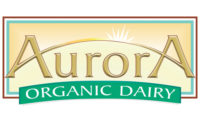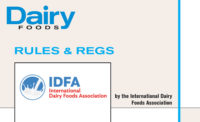The National Milk Producers Federation and Dairy Management Inc. launched an animal well-being program designed to bolster consumer confidence in the U.S. dairy industry. The new National Dairy FARM Program: Farmers Assuring Responsible Management will demonstrate producers’ commitment to the highest level of animal care and quality assurance.
“The dairy industry has an excellent track record of responsible management practices,” said Jerry Kozak, president and CEO of NMPF. “The National Dairy FARM Program will enhance current operations and instill a sense of confidence in consumers who, more now than ever, want to know that animals are well cared for and that the dairy products they consume are safe, wholesome and nutritious.”
The program, which will become available in the fall of 2009, is voluntary and available to all producers. NMPF is managing the production and dissemination of technical animal care manuals, producer education and training, on-farm evaluation and third-party verification.
DMI is assisting with producer and industry outreach and market chain and consumer relations.
“Dairy farmers have been committed to caring for their cows for generations. It’s important for consumers to understand that commitment so they can continue to have confidence that dairy farmers are doing the right thing in their animal care practices,” said Tom Gallagher, DMI chief executive officer.
At the heart of the program is NMPF’s revised “Caring for Dairy Animals” manual, which details best management practices for a variety of animal care issues, including animal health, facilities and housing, animal nutrition, equipment and milking procedures and transportation and handling. The content of the manual is consistent with the principles and guidelines of the National Dairy Animal Well-Being Initiative, which was introduced in 2008. NMPF is working with dairy animal care experts to assure that the document reflects current practices, animal health concerns, innovations and advances in technology.
Training and informational DVDs will be made available to producers, co-ops and others interested in dairy animal care. A National Dairy FARM Program Web site also will include producer education and training.
Once producers have completed the educational component, the next step is an on-farm evaluation by a trained veterinarian, extension agent or co-op field staff member, Kozak said. The producer then receives a status report and, if necessary, an action plan for improvement.
“To protect the integrity of Dairy FARM, we are also developing a third-party verification program,” Kozak said. “We want quantifiable, objective verification that the dairy industry is providing appropriate care for animals. It’s important to remember that the goal of verification is to validate the program, not judge individual producers.”
On-farm evaluations will begin in 2010 and third-party verification will start in 2011. Co-ops and processors may choose to participate in the program to bring consistency to dairy animal care nationwide.
Additional Dairy FARM modules designed to assure the quality, safety and wholesomeness of dairy products will be introduced in the future.
“Our organization whole-heartedly supports Dairy FARM,” said M. Gatz Riddell, Jr., DVM, executive vice president of the American Association of Bovine Practitioners. “The program demonstrates that producers consider proper care for dairy animals a moral imperative. It also provides a credible, verifiable framework for producers to demonstrate that commitment to consumers.”
NMPF has assembled an advisory panel to provide guidance on Dairy FARM. The panel is comprised of dairy experts and industry professionals representing many facets of the industry. Members include Stan Andre, California Milk Advisory Board; Marguerite Copel, Dean Foods; John Frey, Pennsylvania Center for Dairy Excellence; Virginia Littlefield, Safeway Inc.; John Kennedy, Kraft Foods; Shelly Mayer, Professional Dairy Producers of Wisconsin; Dr. M. Gatz Riddell, American Association of Bovine Practitioners; Allen Sayler, International Dairy Foods Association; and Lynne Schmoe, Washington Dairy Products Commission.
Stay ahead of the curve. Unlock a dose of cutting-edge insights.
Receive our premium content directly to your inbox.
SIGN-UP TODAYCopyright ©2024. All Rights Reserved BNP Media.
Design, CMS, Hosting & Web Development :: ePublishing

